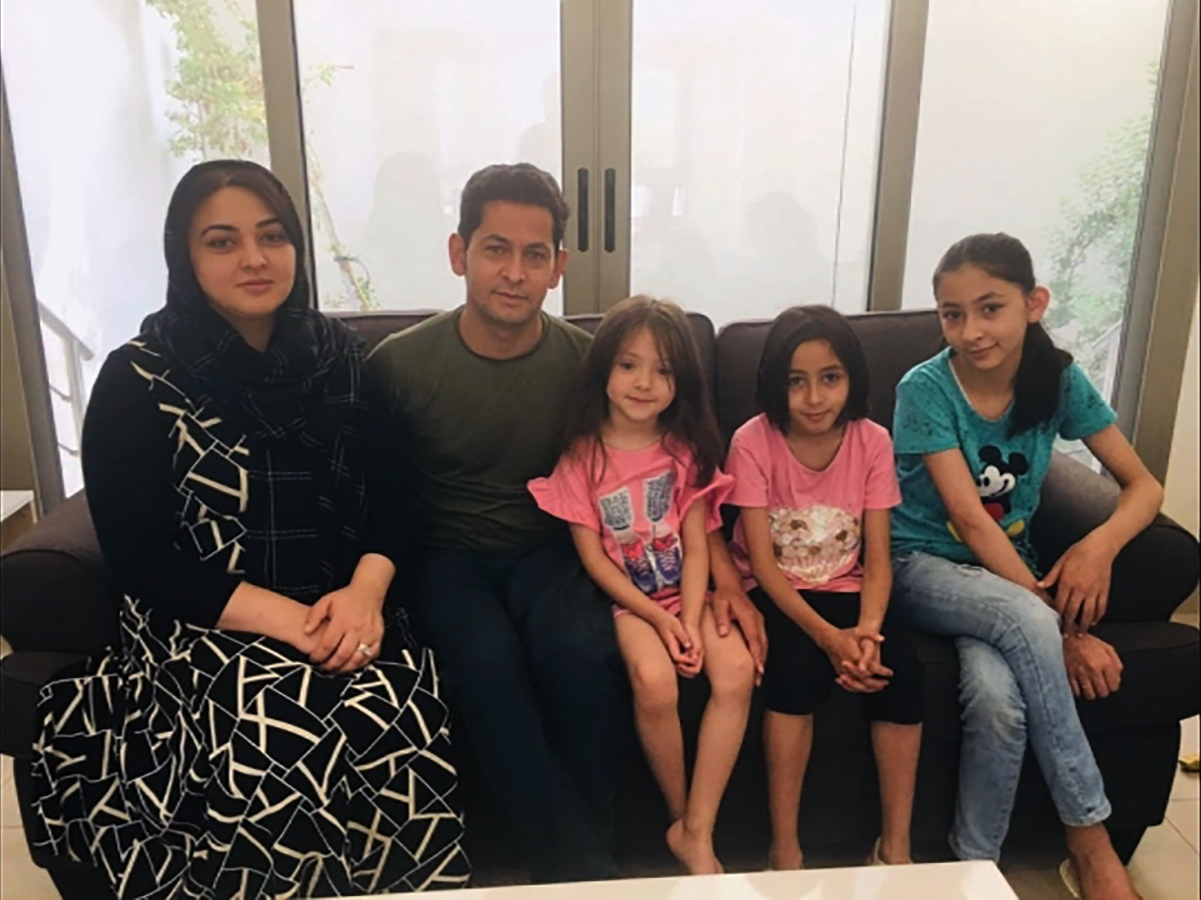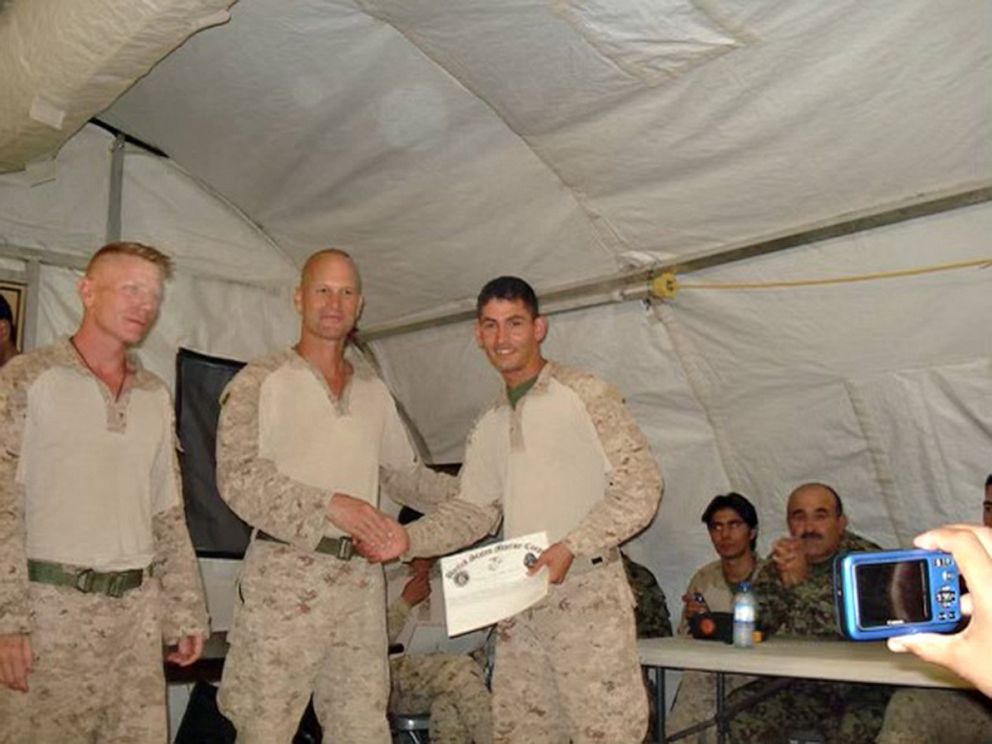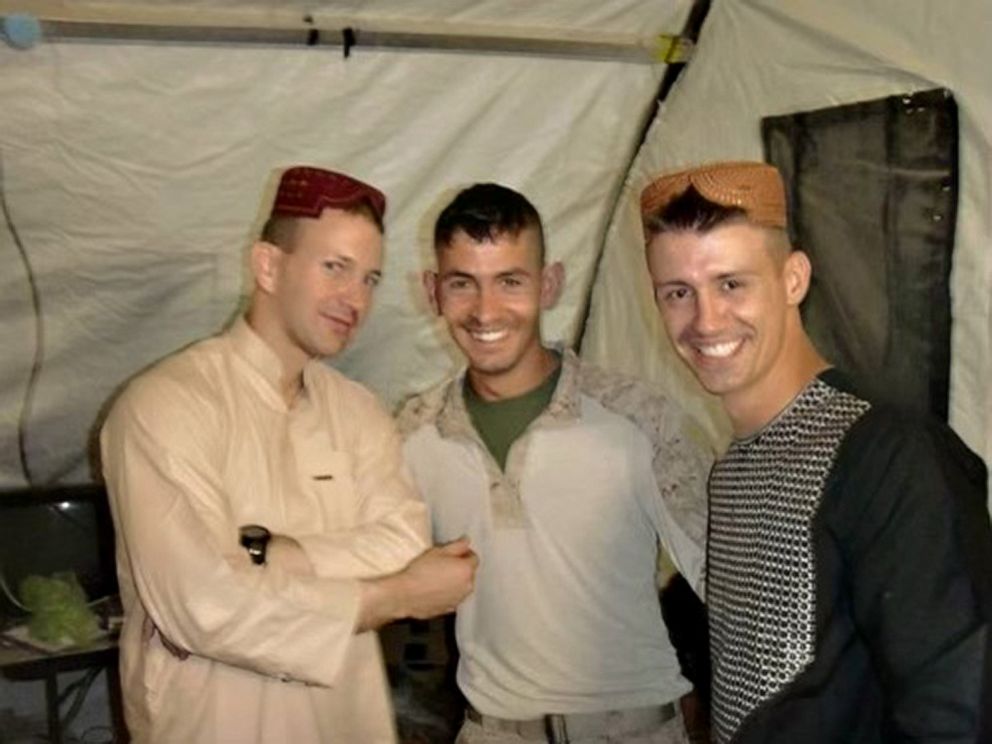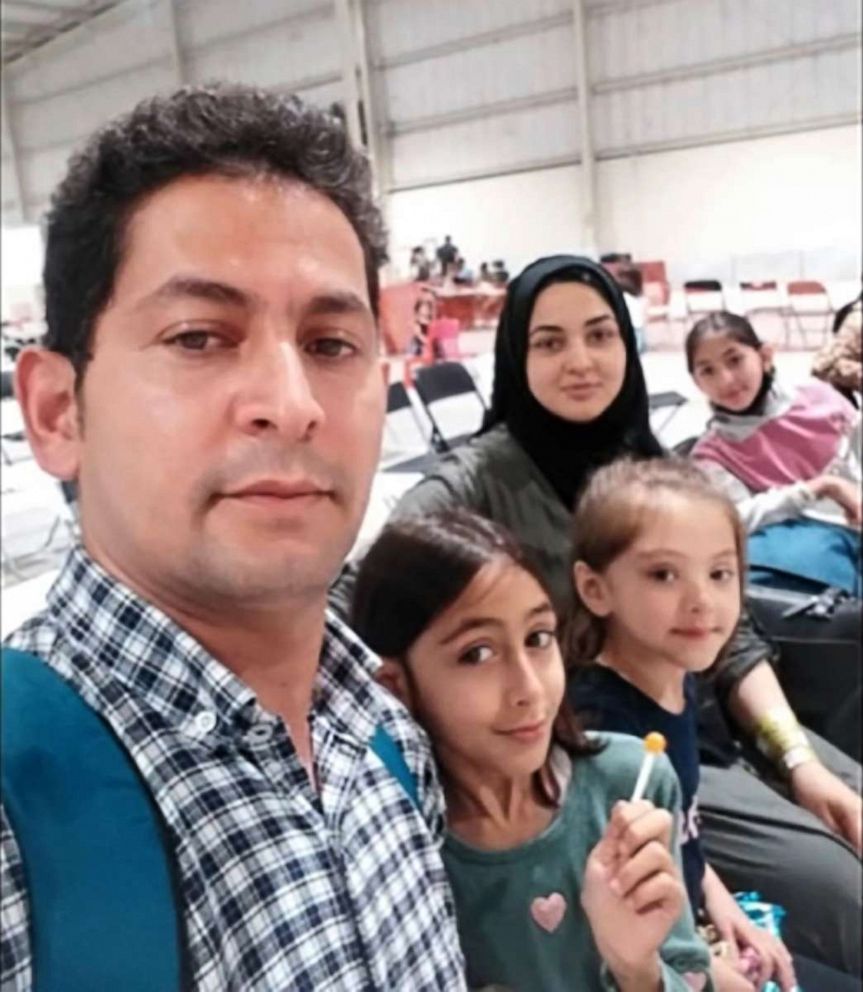'In one day, you lose everything': Afghan interpreter on his family's journey to the US, what lies ahead
When ABC first met Abdul in June, he warned the Taliban would behead him.
"Abdul" was ready to die for his service with the U.S. military.
An interpreter who worked for years with U.S. Marines in some of Afghanistan's most dangerous provinces, he had pleaded for a U.S. visa last June as the Taliban were sweeping across the country, telling ABC News's Martha Raddatz, "I know that I will be killed by the Taliban."
"If they take over the Kabul," he said, "then they will behead us."
By August, with the U.S.-backed government collapsed and the Taliban running the capital's streets, he knew his and his family's lives were in imminent danger.
"If the Taliban capture me, with pride I will tell them I was [an] interpreter and did [it] for my country and my people," Abdul told ABC News on Aug. 20 -- just hours after Taliban fighters had come to his home to find him.
Now, nearly 7,000 miles away on Joint Base McGuire-Dix-Lakehurst, a military facility in New Jersey, Abdul, his wife, Lima, and their three daughters are safe except from their emotions -- anxious to start a new life, fearful for loved ones back in Afghanistan, uncertain about what lies ahead.

"We struggled for 15 years to make that life. But suddenly just in one day, you lose everything. It's difficult to tolerate. It's very difficult," Abdul told Raddatz in an emotional reunion.
Still, they are grateful, he said, knowing well that they are among the lucky ones -- five of the 75,000 Afghans who were evacuated in President Joe Biden's chaotic, unprecedented operation and have been brought to the U.S.
To date, approximately 48,000 of them have been resettled in communities across the country, while 26,000 remain on military bases in New Jersey, Texas, Wisconsin, Indiana, New Mexico, and Virginia.
In total, the Biden administration expects to resettle up to 95,000 Afghans, with several thousand still overseas on U.S. bases in the Middle East and Europe.
That's made Joint Base McGuire-Dix-Lakehurst home for Abdul and his family and tens of thousands of others who have passed through. More than 100 babies have been born on base, and several marriages have been conducted, according to the Department of Homeland Security.
"They're a very traumatized population. They've left a lot of loved ones behind," said Colonel Soleiman Rahel, who serves as "governor" of the resettlement camp there.
Himself an Afghan refugee, Rahel said "on a daily basis," U.S. service members, resettlement agency staff and volunteers help Afghans cope with the challenges of a new life and the "pain and horror stories" of families back in Afghanistan.

During a recent town hall on base, one Afghan refugee showed a photo of his cousin on his phone and shared that he was murdered two days earlier by the Taliban.
"I don't have a good answer to that, and I don't think anybody has anything to fix that," said Brett Dreyer, a DHS official serving as deputy federal coordinator. "But it's things like that that happen all the time, and they really hit home and remind you of why these people are here and why we need to help them."
That work has made the military base a safe, but unfamiliar new home for Abdul and Lima's daughters. Despite the danger, their youngest, just 6 years old, cried as they fled Afghanistan, "I love my sweet home, but I have to go from Afghanistan."
"'Don't worry, everything will be good because we have a lot of American friends. They're going to save us'," Abdul said he and Lima told them.
But it was Abdul and Lima who saved their family first.
Despite his years of service as an interpreter, Abdul had struggled to secure a Special Immigrant Visa, granted to Afghans whose lives were at risk for working for the U.S. military and diplomatic missions. Years of bureaucratic red tape, arbitrary denials and slow-walking under former President Donald Trump created a backlog of more than 18,000 applicants and processing times that stretched into years.

"If you work a single day for a coalition force, or you support a single day for the coalition forces, they will kill you," Abdul told Raddatz when they first met in June.
At the time, the Taliban was sweeping across Afghanistan's northern provinces after Biden announced he'd follow through on Trump's deal with the militants and withdraw all U.S. forces by Sept. 11 -- 20 years after the attacks that brought American troops to Afghanistan.
With the fall of Kabul in August, that threat of reprisal became suddenly, palpably real. That same week, Taliban fighters banged on the family's door looking for Abdul. His wife Lima "saved my life," Abdul said -- telling the gunmen there was no man in the house as she shielded their three daughters.
"They left, and they told me that we are coming back. At that time, I was really scared -- and my concern was that they can harm my children," said Lima, a journalist.
With just two bags and about $100, they fled that night to a safe house in a village outside Kabul -- mourning the life they were forced to leave behind.
Days later, they returned to Kabul to a secure hotel, waiting to make that dangerous journey to Kabul airport with the help of ABC News.
At night on Aug. 23, they passed through the Taliban checkpoints, halted for over 60 heart-racing minutes as sporadic gunfire pierced the air, Lima covering their youngest daughter's ears. They passed through the crowds of their desperate fellow citizens, scores of whom would lose their lives in a deadly ISIS attack at the same gates just three days later.
Both parents were gripped with fear, Abdul recalling, "I can put a risk my life at risk, no problem. But I couldn't put the life of my wife and my children at risk because many people has been killed around the airport."
But in those dark days, they had a glimmer of hope -- nearly 7,000 miles away. Asked by ABC News's Stephanie Ramos about Abdul's case, Biden said, "We want you to be able to get to the airport. Contact us. We'll see whatever we can do to get you there."
"I will never forget this because that night made all life. That's why we're here," Abdul said.
Once inside the walls, they made it on a flight to Doha, Qatar, spending two months there, where they were vetted, vaccinated and given the green light for relocation.
On Oct. 30, they were flown to Philadelphia and driven onward to McGuire-Dix-Lakehurst, where they've spent nearly two more months now -- anxious to make that last move to their new home.

"Patience is starting to run out a little bit," Dreyer, the DHS official, said of Afghans on base, "But it's a process that takes time. You know, we want to set them up for success. We just don't want to place them around the country without a support network in place, and that takes time."
Until then, Abdul said, his daughters are not convinced they are really in America -- one telling him recently they're actually in "a small village of Afghanistan," he said with a laugh.
But Abdul and Lima know how far away they are. Lima said she thinks of "everyone" back home, but especially for Afghan women.
"There is not a hope of a good future in Afghanistan, especially for women. Women cannot do anything there," she said -- a future their three girls will now escape.
It's that future that keeps them going, they said, even on the most difficult days where the path ahead is in doubt.
Through it all, Abdul said, he remains defiantly "proud" of his service with the U.S. military and viscerally angry at the Taliban for destroying his country.
"I want to be voice of the people who are still in Afghanistan and who are not evacuated," he said. "And I will fight again against the Taliban. ... Up to the end of my life."




